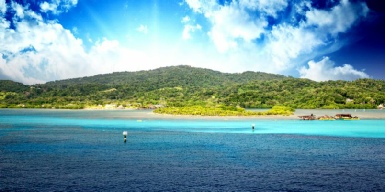Honduras, officially the Republic of Honduras (Spanish: República de Honduras), is
a republic in Central America. It has at times been referred to as Spanish Honduras
to differentiate it from British Honduras, which became modern-day Belize. Honduras
is bordered to the west by Guatemala, to the southwest by El Salvador, to the southeast
by Nicaragua, to the south by the Pacific Ocean at the Gulf of Fonseca, and to the
north by the Gulf of Honduras, a large inlet of the Caribbean Sea.
Honduras was home to several important Mesoamerican cultures, most notably the Maya,
before the Spanish invaded in the sixteenth century. The Spanish introduced Roman
Catholicism and the now predominant Spanish language, along with numerous customs
that have blended with the indigenous culture. Honduras became independent in 1821
and has since been a republic, although it has consistently endured much social strife
and political instability, and remains one of the poorest countries in the Western
Hemisphere. Honduras has the world's highest murder rate.
Honduras spans about 112,492 km2 and has a population exceeding 8 million. Its northern
portions are part of the Western Caribbean Zone, as reflected in the area's demographics
and culture. Honduras is known for its rich natural resources, including minerals,
coffee, tropical fruit, and sugar cane, as well as for its growing textiles industry,
which serves the international market.





